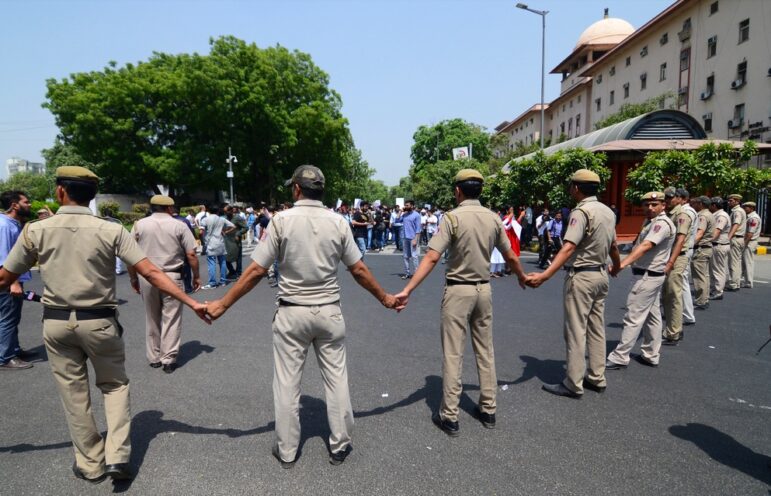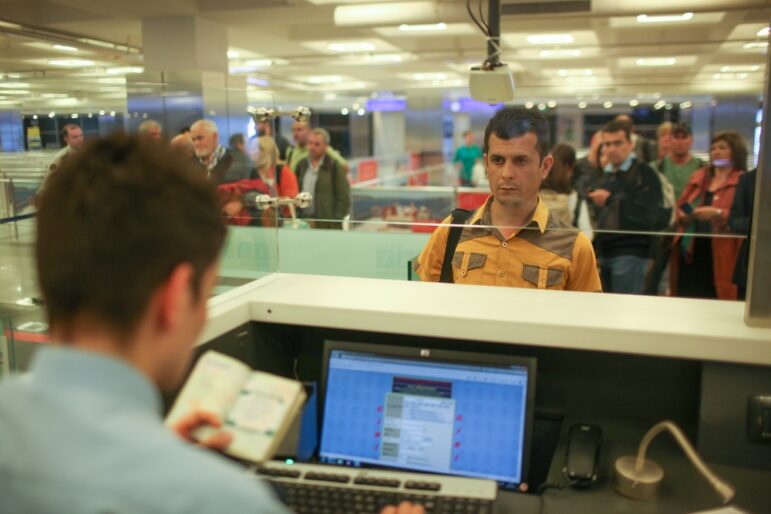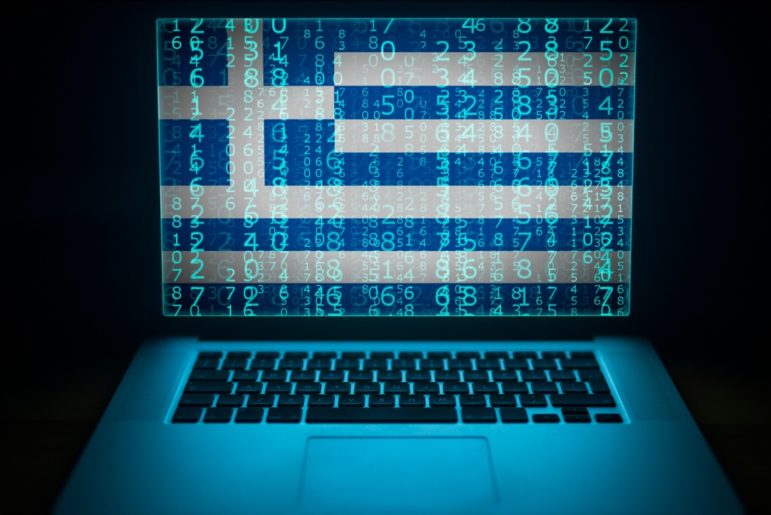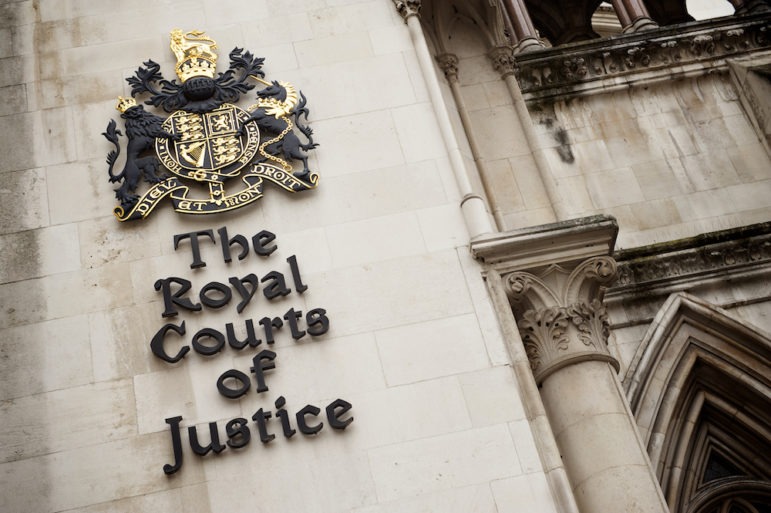

Image: Shutterstock
How to Successfully Defend Yourself in Her Majesty’s Libel Courts
Read this article in

Image: Shutterstock
For years, when conducting workshops on cross-border investigative reporting, I would warn participants about the risk of getting sued in London courts. But two years ago I got the chance to experience it for myself when I was sued for defamation by a wealthy Azerbaijani politician.
Although I knew to expect a long and difficult process, it was still more painful than I could have imagined, sucking up vast amounts of time, energy, and money, and taking me away from my work for long periods. Last month, the politician who dragged me to court discontinued the case on terms that were very favorable to me and to the organization I co-founded, the Organized Crime and Corruption Reporting Project (OCCRP). How did we obtain such a positive outcome?
Many things helped us — we had excellent legal representation and confidence in our reporting — but I believe a major factor was that we continued to doggedly investigate the case throughout the process of being sued, just as we would have done in our regular work but this time with the crucial help of new allies – our lawyers.
I Got Served
So, how does a Romanian reporter — or, for that matter, any foreign journalist — get sued in the United Kingdom by an Azerbaijani politician for an article about corruption taking place hundreds of miles away? The answer lies in the low barriers to filing suit for libel in the UK, which has made London a premier destination for what is known as “libel tourism.”
There are just two main conditions that must be met for a press article to become a topic of litigation in UK courts:
First, the claimant needs to have some standing there, usually in the form of property owned in the country and a residency permit of sorts. This is not hard: London is a major real-estate hub that attracts the wealthy and powerful from all over the world — including many people of interest to those reporting on corruption.
He or she also needs to show that the articles were read or distributed in the UK. Today that’s an easy task, as the person suing only has to show that a few British IP addresses accessed the investigative materials.
I was served the lawsuit in Romania via local lawyers who chased me down at the request of the UK solicitors hired by the Azerbaijani politician. The articles that the politician complained about were part of the Azerbaijani Laundromat, an investigative project that I coordinated, wrote, and edited in large part but, to my surprise, the suit referred to content that I did not work on.
We’ve been sued before, and similar claims against OCCRP have been dismissed by judges in the United States and around the world, so I thought this time would be no different.
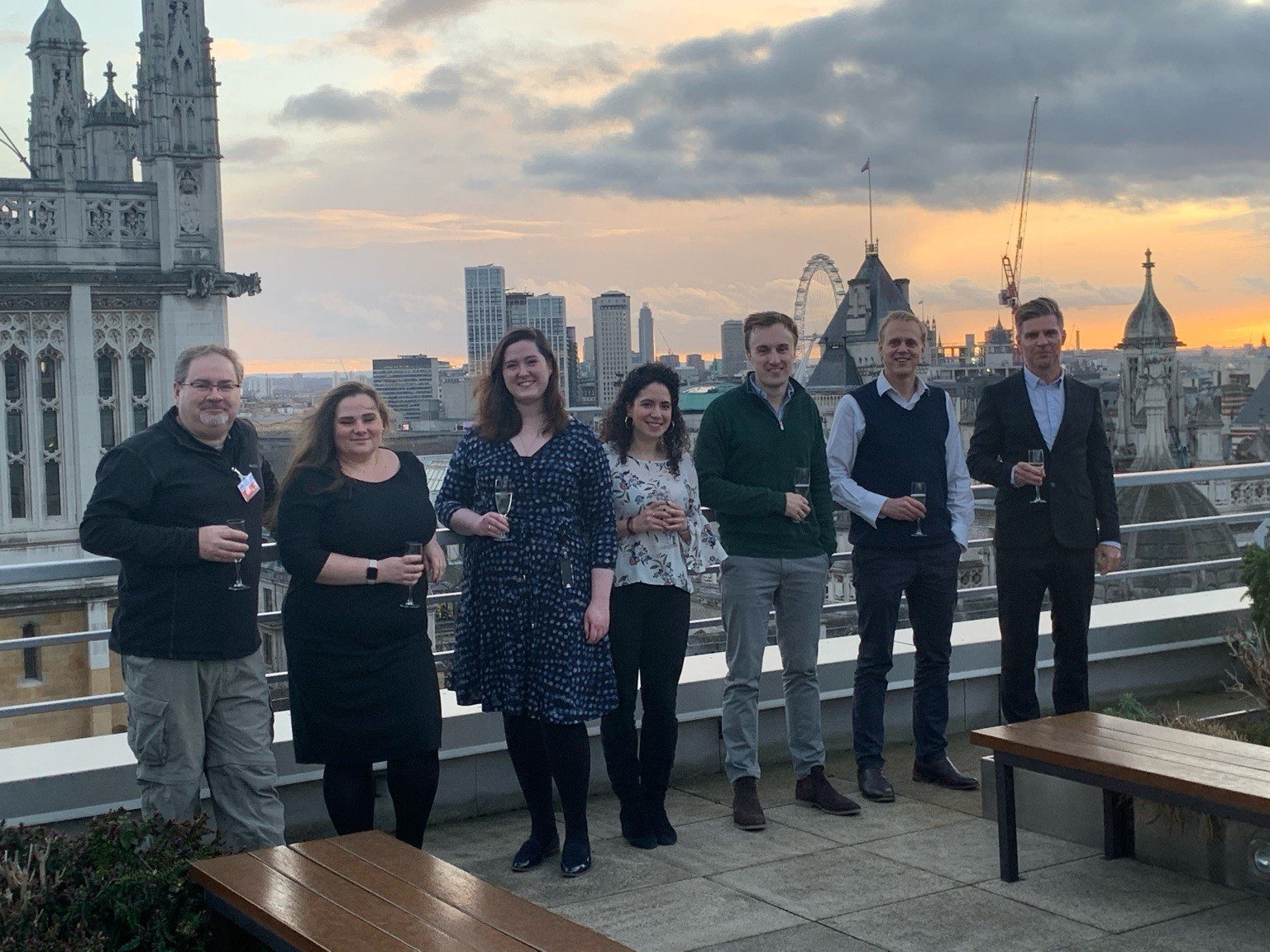
Celebrating in London following the settlement of the libel lawsuit. OCCRP’s Drew Sullivan and Miranda Patrucic (on far left) with their lawyers and Paul Radu (far right). Photo: Courtesy Paul Radu
I was wrong, for the simple reason that the UK justice system is unlike the US. In the US, where OCCRP is registered, courts value and protect freedom of speech and demand the plaintiff prove that libel took place and it caused harm. In the UK, the system is designed to protect reputations, and journalists bear the burden of proving that what they wrote is true or “reasonably in the public interest.” That subtle difference means most libel suits fail in America, while many are successful in the UK, making UK courts the jurisdiction of choice for wealthy people shopping for verdicts in their favor or simply trying to drain a journalist of time and money defending themselves against possibly baseless claims.
There’s also another important factor that plays to the advantage of the wealthy: litigation in London is extremely expensive. By the end of the lawsuit, we had spent hundreds of thousands of dollars of our own money from OCCRP’s rainy day fund, which my co-founder, Drew Sullivan, was careful enough to assemble for emergencies such as this. We also received financial support for our defense from the Press Freedom Defense Fund, a great organization that helps journalists in difficult situations.
These costs could have been much greater had we not had the Cyrus Vance Center for International Justice of the New York City Bar Association arrange pro bono solicitors to represent us free of charge and barristers at a “low bono” or reduced fee. Otherwise, our fees could have been crippling. It’s not unusual for either side to spend upwards of $1 to $2 million prosecuting or defending such a case. The loser of the case pays for both sides, meaning that a journalist could end up owing as much as $3 million — not to mention any damage award that the court might set on top of that to compensate the claimant. That’s why most UK media settle quickly and take down stories as soon as they see a claimant is intent on moving forward. But as investigative reporters, we cannot admit our story was wrong just to save money. We have to fight it out.
The people suing journalists in the UK rely on these huge legal bills being so intimidating that the journalists won’t even try to defend themselves.
Some foreign media outlets have simply ignored suits in London, but this can be a big mistake. An adverse UK verdict, whether contested or not, can leave you in serious debt that follows you around the world for life. In my case, I could have owed as much as $3 million.
Things were a bit more complicated in my case because my home country is part of the European Union and a signatory to the Lugano Convention on Jurisdiction and the Recognition and Enforcement of Judgments in Civil and Commercial Matters, which allows for UK court judgements to be enforced in Romania and most European countries. If I’d lost, I would have had my personal property confiscated and be left with a lifetime of debt.
Some part of a judgment may be recovered by libel insurance if your organization has it, as OCCRP does. But insurance is not easy to get for nonprofits and most don’t have it. It’s expensive and may not fully cover a lawsuit. Insurance companies often stop covering organizations that have been sued.
It’s not just about money; journalistic integrity is also at stake in many of these cases. An adverse court ruling in London can reflect badly on your investigative reporting. In this particular case, it could have undermined the concept of a “laundromat,” which I coined years ago to describe an all-purpose financial fraud vehicle that can be used to launder billions of dollars. If the journalist who first uncovered laundromats was ruled by a London court to have reported falsely, the decision could have long-term repercussions for criminal cases based on the laundromat data. This may even be the intent of some lawsuits — after all, it’s easier to win a libel case in the UK than most other types of case. What better way to undermine a criminal case?
How to Mount an Efficient Defense in London
All the above was pretty scary, and OCCRP could not afford to lose this case. So how did we defend ourselves?
Litigation in London is a war that needs to be fought on multiple fronts. We knew we needed a first-class team of London-based lawyers working on our behalf, including both barristers — the lawyers who appear before the court — and solicitors, who take charge of the entire judicial process. With the help of our New York-based lawyer, Alexander Papachristou, we worked with Doughty Street Chambers and the law firm Weil, Gotshal & Manges.
We and our lawyers needed to work as a close team with constant contact, almost like a Vulcan mind meld, as the lawyers learned our reporting inside and out — as well as some of our secrets.
One of the most painful parts of the litigation in London was the disclosure process.
As investigative reporters we are used to obsessively protecting our information, keeping it locked under as many layers as possible of secure communication software, encryption, and protective hardware. But if a judge orders disclosure of all your communication and source materials used in a story, these measures suddenly mean very little.
The discovery process in a UK legal case involves the other party providing the court a list of keywords that need to be searched against your data. This might include the name of the claimant but also very general terms that may be found in thousands of documents.
To conduct these searches in a way that is acceptable to British courts, my lawyers worked through a company that specializes in e-disclosure. These people use specialized software and devices to extract data from all your data keepers: phones, laptops, servers, social media accounts, email accounts, and more.
It’s an extremely invasive procedure that requires you to give up your passwords and even the codes generated by your authenticator apps so that your accounts and hard drives can be combed through. For this pleasure, you have to pay the company significant amounts of money — e-disclosure can cost hundreds of thousands of dollars in service and storage fees by the time a case is done.
In our case, the disclosure company conducted the keyword searches on the copied data and sent our lawyers the results. We had only a few days to check the findings, strip the documents’ metadata for source protection purposes, and provide it in a bundle to the other party.
The claimant needed to do the same on his devices, but that was of very little comfort. Neither side ever believes a full disclosure has been done, especially when they fail to find that piece of information that they consider a smoking gun.
After the proceedings are concluded, the e-disclosure company has the obligation to erase all your data from its systems.
Disclosure can be very damaging for your court case if, for instance, the other party sees that you have referred to them in bad terms in an email. Never joke to a colleague or to an editor by writing things like: “Let’s get these guilty scumbags.” Being polite and professional in all your communication can spare you a lot of future grief. Fortunately, OCCRP editors are professional and nothing embarrassing came to light.
The other crucial component to being successful in London courts has to do with your most prized asset as a journalist: your investigative reporting skills.
Think about the article that got you sued as just the beginning, as the base layer from where you start generating a lot more investigative reporting in order to support your case.
This is key to a successful defense in British courts, where the burden of proof rests on the journalist’s shoulders.
What Does It All Mean?
Unlike courts in the US and elsewhere, the UK system has a unique feature in which a judge may determine the “meaning” of your article. This is where things can get ugly.
As investigative reporters, we’re very good at carefully saying what we want to say. Our reporting presents the facts. We don’t draw legal conclusions. But in the British courts, a judge determines what your carefully crafted wording means to them as a legal matter. They may decide the “legal meaning” was that someone was the new godfather and had taken over the local crime group. Now you have to prove that judge’s legal meaning in court with real proof, even though you never said it, and maybe never meant it. You may not even believe it to be true.
So you and your lawyers need to assemble a top-notch investigative team. I was very lucky to have amazing colleagues who dedicated a lot of time to my defense. For months on end, we kept calling sources and kept on amassing new proof that was put at the disposal of our lawyers.
One of the investigative team’s main members, Khadija Ismayilova, spent a great deal of time and effort working on my defense, despite being in a dire situation herself in her home country, Azerbaijan. She is banned from traveling outside of the country and has been subject to relentless harassment from the country’s president and a cohort of corrupt politicians whom she has investigated over the years.
It wasn’t just OCCRP journalists who dedicated their time to building up my defense. My lawyers also brought in outside experts such as Graham Barrow and Richard Smith, who pored over thousands of banking transactions and developed their own views on them to share with the court.
Very soon, our barristers and solicitors themselves became experts in what I dubbed years ago “the laundromats” — complex systems for moving money across borders that allow corrupt politicians, organized crime figures, and wealthy businesspeople to secretly hide, invest, or launder their billions. The lawyers could exercise a power that is not available to journalists: the British courts’ subpoena power. This allowed them to officially request documents that journalists can only get through leaks and well-placed sources.
I believe these combined efforts increased our chances of winning the court case in London and made our case and story stronger than it had ever been, a fact we were required to share with our opponent. In the end, the other party asked for a settlement favorable to us right before we were due to appear at Her Majesty’s High Court of Justice. Why they did this, we don’t know, but we felt far more confident in our story by that point.
I recommend that if you are sued, you consider the case to be another investigative project. You will need to bring partners together and start a significant investigation. Be aware this investigation may fall under disclosure rules, so plan accordingly. You need to find everything they were involved in. You may find more evidence than you ever imagined.
The Azerbaijani articles we wrote are intact and online. By agreement, we attached wording to them that can be read here:
“Javanshir Feyziyev brought libel proceedings over two articles published on the OCCRP website. The court determined that the articles had the legal meaning that there were grounds to suspect him of involvement in money laundering, but not that he was guilty of money laundering or any criminal conduct.
The parties agreed to settle those proceedings. OCCRP has agreed to add to the articles the fact that Mr Feyziyev categorically denies involvement in money laundering or any unlawful activity.”
My London lawsuit profoundly disrupted my work, as well as my personal life, but in the end it was all worth it. This lawsuit leaves OCCRP much stronger in the face of future legal threats, as we now know a great deal about how to mount a vigorous defense and tilt the balance in our favor.
While writing this, I received news that German prosecutors had acted on the information revealed in our Azerbaijani Laundromat series and charged German politicians and their associates with bribery, corruption, and money laundering. One of the Germans now targeted by the official investigation, the veteran politician Eduard Lintner, allegedly got paid via the Azerbaijani Laundromat, according to our series.
Now Lintner cannot benefit from a ruling saying our story wasn’t true.
 Paul Radu is the co-founder of the Organized Crime and Corruption Reporting Project and of the RISE Project, an investigative reporting platform in Romania. He is a recipient of the Knight International Journalism Award, Investigative Reporters and Editors Award, and European Press Prize, and serves on the board of the Global Investigative Journalism Network.
Paul Radu is the co-founder of the Organized Crime and Corruption Reporting Project and of the RISE Project, an investigative reporting platform in Romania. He is a recipient of the Knight International Journalism Award, Investigative Reporters and Editors Award, and European Press Prize, and serves on the board of the Global Investigative Journalism Network.






